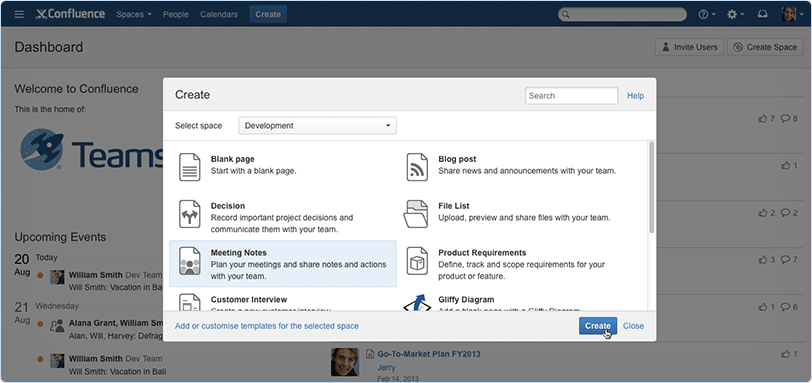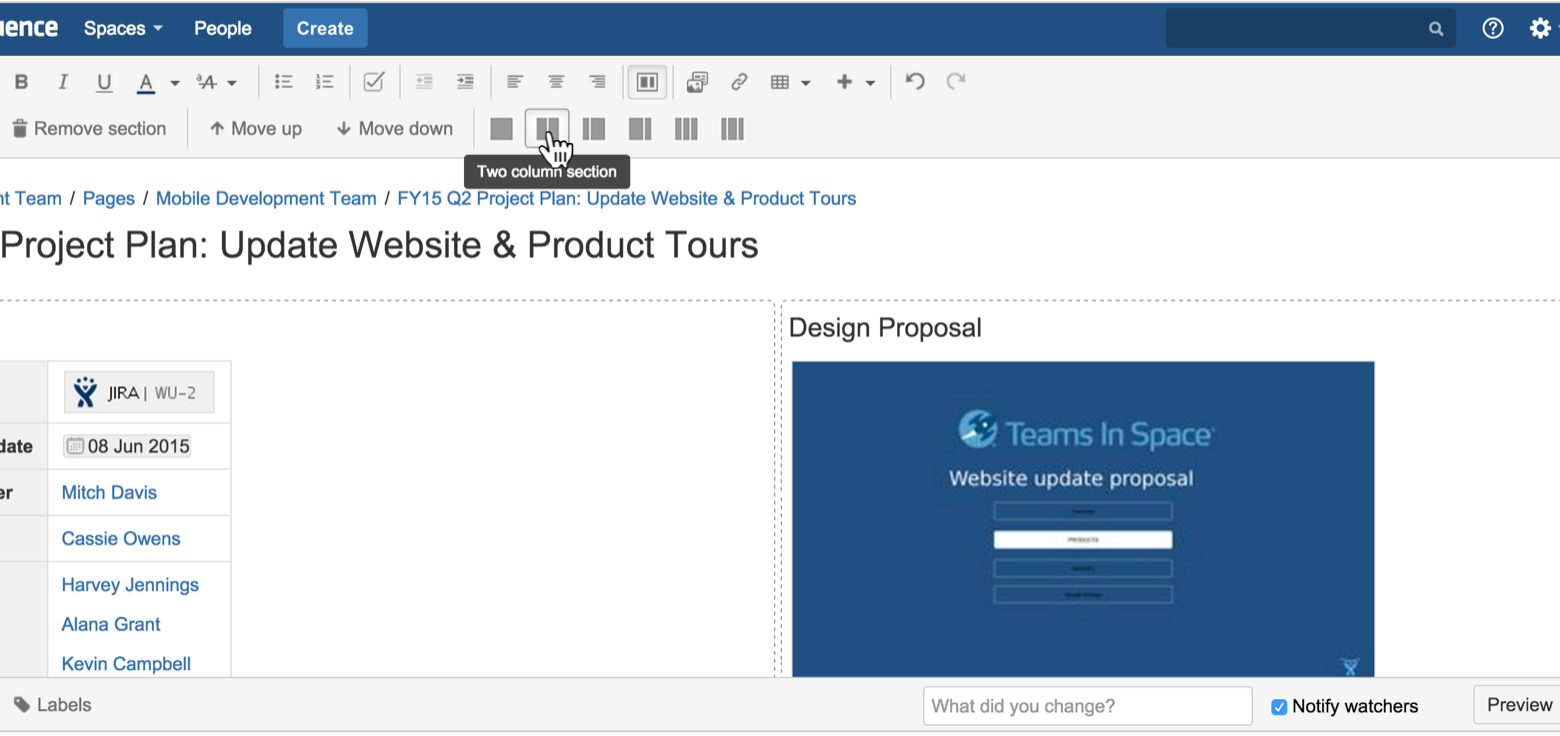Here are five great tips for creating Confluence pages that I’ve learned (and wish I knew sooner) while using Confluence as the primary tool for working with my team.
Anyone who has used Confluence for a while knows how powerful pages are, and that creating content with pages takes some practice. Sometimes, we forget what it’s like to be a brand new user. Also, an important part of your success using Confluence is understanding the benefit and utility of creating content online.
To help you on your Confluence journey, here are five things I’ve learned using it as the primary tool for working with my team:
1. Start with a template
Starting with a blank page is liberating for some, but why recreate the wheel? Confluence templates make it easy for beginners to hit the ground running and quickly get the hang of creating pages. Templates are also efficient for those who need structure for repeated business processes. You can either use one of the best practice blueprint templates we include, or create your own from scratch. To make it even easier, you can also customize the blueprint templates we have included so that they fit your team’s needs. Whatever it is your team creates on a regular basis, you can templatize it in Confluence.

2. Page layouts are your friend
Formatting your work on a page shouldn’t be difficult. Page layouts make it intuitive to structure content with columns and sidebars that you can adjust on the fly. Add a page layout from the toolbar and try out the different structures to see what fits best. You can change the structure at any time and even move sections up and down to reorganize your page as the content evolves.
3. People like visuals
This one’s easy. Content becomes far more engaging when an image, graph, or video is embedded. If you’re creating a report for your team, include a graph. Working on designs? Include your wireframe images and mockups. Or, if you’re working on a project or proposal, attach your presentation deck. Confluence makes it easy to include any of these by just dragging and dropping your image or file of choice directly into the editor. Want to add multiple files at once? Hit the files button in the toolbar to browse for files on your computer or the web to add several to your page.
4. Macros will make you a Confluence legend
Ever seen a Confluence page with some nifty content like a table of contents, an embedded roadmap, or a pie chart based on Jira issues and wonder, “How did they do that?” Enter the world of macros. Macros enable you to do powerful things in Confluence pages. Macros might seem intimidating at first, but you can add all kinds of cool, dynamic content with just a few clicks. Give ’em a try. Just type the ‘{‘ key and open the macro browser.
Here are a few useful macros you can start using to juice up your pages:
5. You don’t need your mouse
When you’re in the zone, sometimes even the slightest disturbance can cause you to lose focus. One thing that always irks me is having to reach over to my mouse for formatting while typing up a document. In Confluence, it’s easy to work quickly without the mouse thanks to handy keyboard shortcuts. Click on the “?” in the top nav while editing to see them all.
New to creating Confluence pages? (Or know someone who is?)
Check out our latest Confluence 101 article about creating pages. There’s even a nifty short animated video to help new users understand how Confluence (and creating content online) can help them create content in a brand new way.

